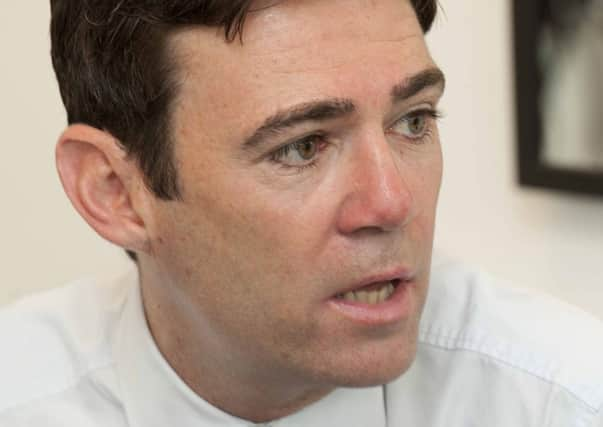Row over NHS switch in ‘major incident’ rules


Shadow health secretary Andy Burnham warned the new “enhanced criteria” - issued to NHS trusts in the West Midlands - effectively made it impossible for hospitals to call a major incident.
A number of hospitals ordered the move earlier this month including bosses in Scarborough as the NHS faced a surge in patients.
Advertisement
Hide AdAdvertisement
Hide AdLatest figures from Yorkshire Ambulance Service reveal the scale of the problems it faced in December when fewer than two-thirds of 999 crews were on scene in eight minutes, well behind the 75 per cent target.
The Yorkshire Post can reveal the service faces nearly £4 million in fines due to response time failures. In some places last month - among them Rotherham, Barnsley,Airedale, Wharfedale and Craven - barely half of casualties were seen in the target time.
Yesterday Mr Burnham said new guidance on major incidents was being seen by staff as an attempt at “news management”.
Major incidents are declared when patient demand risks disrupting hospital services, triggering an alert to the wider NHS.
Advertisement
Hide AdAdvertisement
Hide AdMr Burnham said: “Some of the points in the criteria make it effectively impossible for them to declare a major incident. One of the questions I have is ‘Is that consistent with good patient safety?’.”
In an email exchange quoted by the BBC, the head of operations at one NHS trust wrote: “This is the enhanced criteria that have been introduced by NHS England to effectively stop trusts from calling a major incident.”
An A&E consultant replied: “It strikes me as an attempt to dampen down the heat and media attention on the emergency departments and their major incidents.”
NHS England’s national director of commissioning operations, Dame Barbara Hakin, said: “Local hospitals continue to have responsibility for deciding whether to declare major incidents, but before doing so best practice dictates that they take account of the wider impacts on other parts of the NHS so that patient safety in the round is protected.”
Advertisement
Hide AdAdvertisement
Hide AdHealth Secretary Jeremy Hunt accused Mr Burnham of “cynically” exploiting the situation.
“Another day another example of Labour trying to weaponise the NHS, this time on major incidents guidance,” he said.
Figures in Yorkshire show there was an increase in the most serious 999 calls of 18 per cent in December. Paramedics reached fewer than three in five casualties in eight minutes in both West and South Yorkshire. Overall 69 per cent of call-outs hit the target between April and December.
Rod Barnes, interim chief executive at the ambulance service, said December had seen “unprecedented” demand but response times were recovering.
Advertisement
Hide AdAdvertisement
Hide Ad“Whilst we are working hard to make further improvements to our response times, it is important to remember that they are not the only measure of the care we provide to patients and our focus remains on delivering safe and high quality services,” he said.
NHS Wakefield Clinical Commissioning Group, which is in charge of the ambulance contract in Yorkshire, said: “The application of contractual sanctions is currently being maintained in line with the national NHS standard contract.”